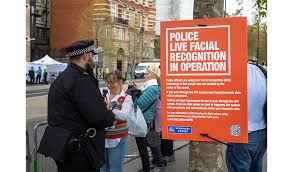"George Orwell’s iconic novel Nineteen Eighty-Four, published in 1949, warns of a dystopian world where The Party or the government undermines people’s rights, independence and autonomy through fear and propaganda. Constant surveillance is a key weapon for disciplining people and shaping their minds.**
That world has arrived in the UK, the self-proclaimed mother of parliaments. The new tyranny isn’t ushered in by some communist, socialist or military regime but by a right-wing elected government.
The latest weapon is the Data Protection and Digital Information Bill which puts the bank accounts of 22.4m people under constant surveillance. In true Orwellian doublespeak, the government claims that the Bill allows “the country to realise new post-Brexit freedoms” and links surveillance to people’s fears about frauds.
The Bill uses developments in electronic transactions and artificial intelligence to place the poor, disabled, sick, old and pregnant women under surveillance. It gives Ministers and government agencies powers to direct businesses, particularly banks, and financial institutions, to mass monitor individuals receiving welfare payments, even when there is no suspicion or any sign of fraudulent activity. No court order is needed and affected individuals will not be informed. The Bill enables Ministers to make any further regulations without a vote in parliament.
Currently, the Department for Work and Pensions (DWP) can request details of bank accounts and transactions on a case-by-case basis on suspicion of fraudulent activity.
The government says the Bill “would allow regular checks to be carried out on the bank accounts held by benefit claimants to spot increases in their savings which push them over the benefit eligibility threshold, or when people send more time overseas than the benefit rules allow for. This will help identify fraud [and] take action more quickly.”
A pernicious aspect of the Bill (clause 8) is that makes it very difficult for people to find out the information held about them by government agencies. Requests can more easily be dismissed as vexatious or excessive.
On 29 November 2023, the Bill was passed by the House of Commons by 269 to 31 votes. A Labour Party spokesperson said “We support the Bill” and the party abstained on the vote. It will now come to the Lords.
The new surveillance powers are to be applied to around 22.4m people claiming a variety of benefits. The UK has some 12.6 million recipients of the state pension, and many retirees claim means-tested benefits because the state pension is too low to live on. So retirees too are included in the 22.4m people subject to surveillance.
How prevalent is benefit fraud? The government estimates that for the year 2023 the benefit fraud was £6.4bn (2.7% of total). The government claims that mass surveillance would reduce fraud by £600 million over the next five years though this somehow became £500m during the debate in the Commons, i.e. £100m-£120m a year. During 2023-24, the government is expected to spend some £1,189bn. So, how significant is a potential saving of £100m-£120m in that context? Or is the Bill just distracting attention away from other objectives by demonising the less well-off?
The focus on bank accounts suggests that the government is looking for unusual patterns. So, if you give a lump sum to a loved one for Christmas, birthday, holiday or home repairs, and it passes through a bank, the government could seize upon that as evidence of excess resources and reduce or stop benefits. Suppose a poor person pawns some household items for a few pounds and that temporarily boosts bank balance. Would that person be penalised?
Any government serious and even-handed about tackling fraud would arguably extend surveillance to arenas other than just benefits, but it does not. Billions of pounds have been lost due to government related frauds in pandemic management, Covid loans and contracts for cronies, but none of the individuals involved are under financial surveillance.
The Bill only targets the less well-off. There is no equivalent surveillance of legislators who accept payments to advance the interests of their corporate paymasters. Earlier this year, in a sting operation former chancellor, Kwasi Kwarteng, and former health secretary, Matt Hancock, agreed to work for £10,000 a day to further the interests of a company, but there is no surveillance of the bank accounts for former ministers.
There is no surveillance of the bank accounts of bankers engaging in illicit financial flows. The defence industry has a long history of engaging in bribery and corruption to secure contracts, but its bank accounts are not subject to surveillance. Energy companies also do the same, but neither theirs nor their directors’ bank accounts are subject to surveillance.
Since 2010, HMRC has failed to collect between £450bn and £1,500bn of taxes due to evasion, avoidance and errors. Most avoidance schemes are designed and marketed by bankers, accountants and lawyers, but the Bill does not put their bank accounts under surveillance. Major accounting firms are central to concocting abusive avoidance schemes, but despite strong court judgments, no major accounting firm has been investigate, fined or prosecuted. Research shows that people are 23 times more likely to be prosecuted for benefit offences that tax offences.
This Bill is part of a long line of laws that frames the working class as the problem because they withdraw labour to improve their pay and working conditions. The Strikes (Minimum Service Levels) Act 2023 makes it very difficult, if not impossible, for workers to take strike action. So, what are workers to do about worsening pay? People might protest, but the The Public Order Act 2023 has criminalised protests that can cause “serious disruption” to two or more people or to an organisation in a public place.
The government blames the working class for social ills without addressing any of the underlying social problems. Former Prime Minister Liz Truss described UK workers as the “worst idlers in the world” even though they work some of the longest hours in Europe. However, work does not pay enough even though corporate profits are booming. Some 38% of the 6.2m people on Universal Credit are in employment. 58% are women as gender pay gap persists, and the government does little about the underlying issues. Those receiving low wages turn to social security support and become subject to surveillance.
The scapegoating of the working class is carefully wrapped in claims about Brexit opportunities and fraud prevention. In this way, the government (or The Party, as Orwell called it) erodes people’s ability to think rationally and makes them believe its propaganda. People are constantly told that they must sacrifice their liberties and freedoms for the greater good of the society, which is equated with greater good of capital and wealthy elites. The government thinks this commitment will somehow make people forget about the harsh realities of 7.8m waiting list for NHS hospitals, hungry children, crumbling schools, cost of living, poverty and economic failures. People need to produce counter narratives to check the continuous erosion of hard-won rights.": https://leftfootforward.org/2023/12/prem-sikka-how-the-data-protection-and-digital-information-bill-is-the-governments-latest-erosion-of-hard-won-rights/
I just signed this important petition on Organise, please can you add your name?
Prevent the DWP from scrutinising disabled people’s bank accounts


